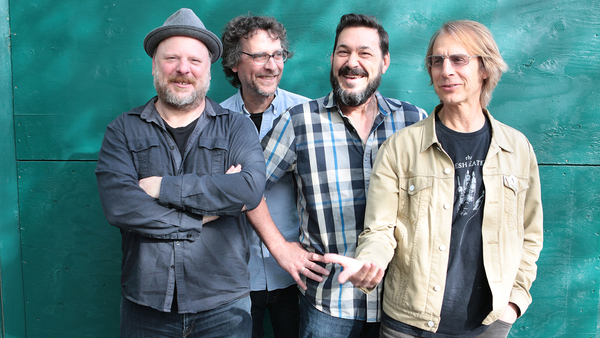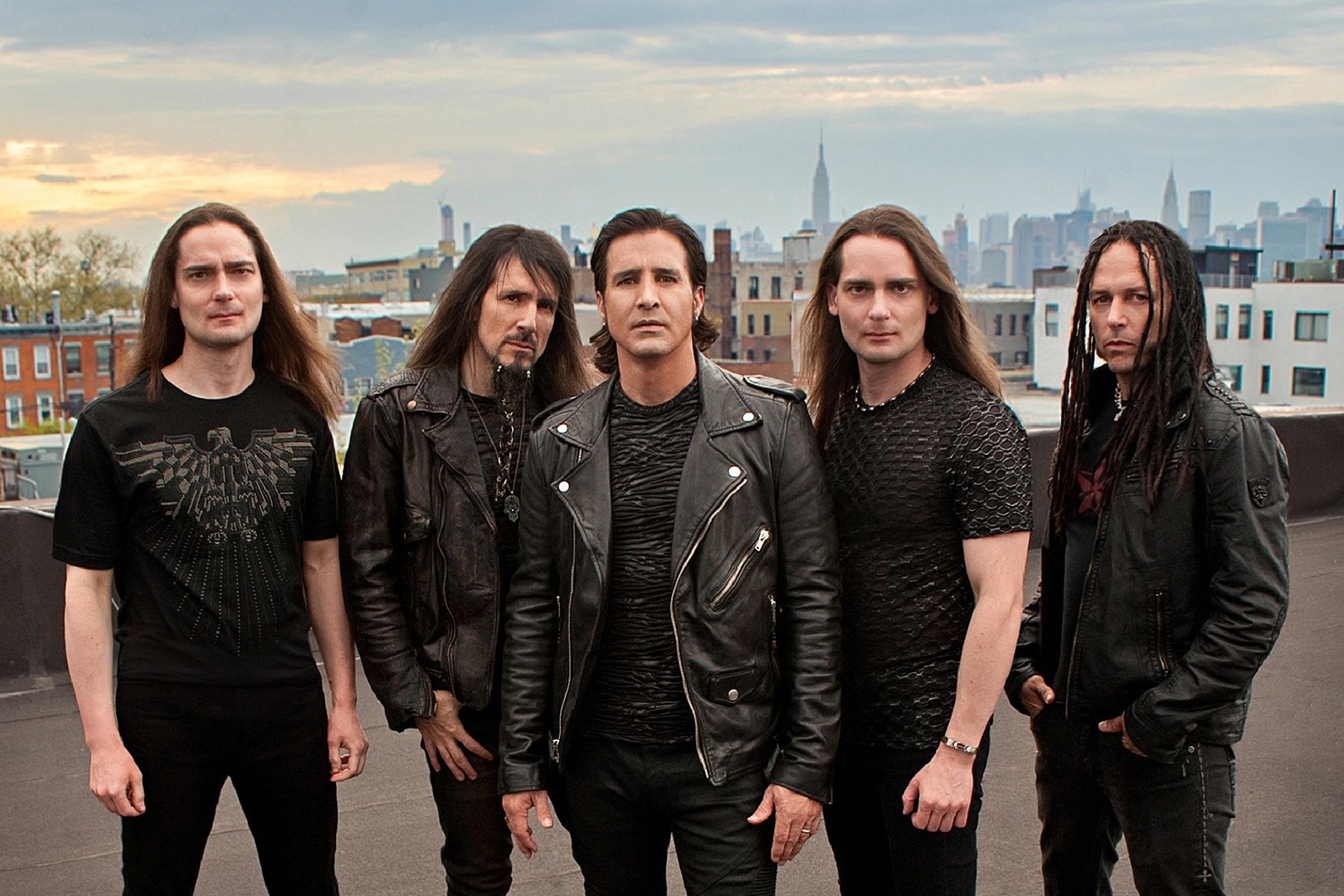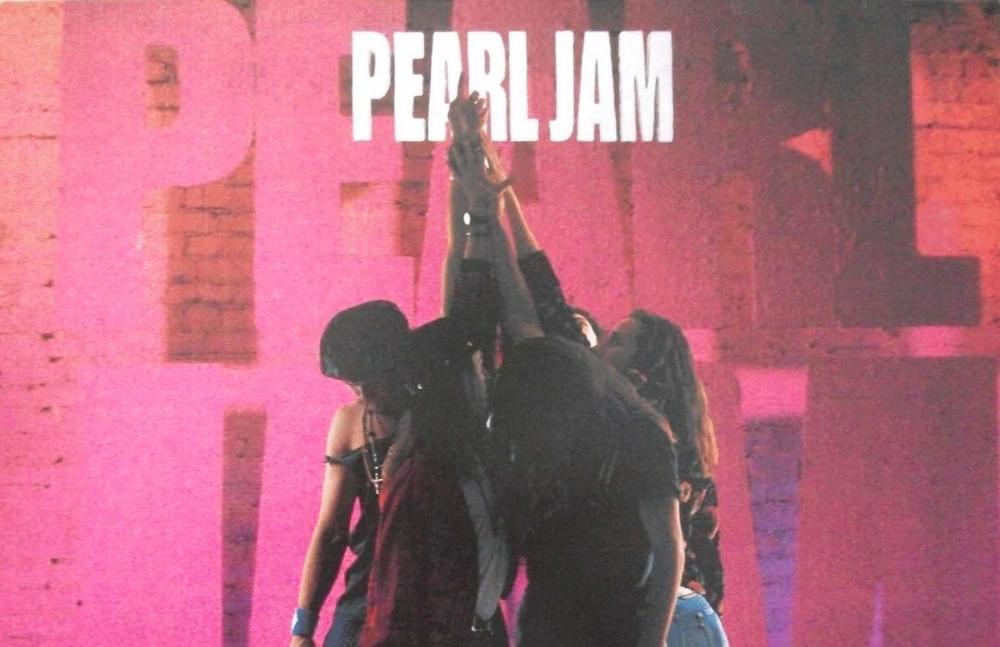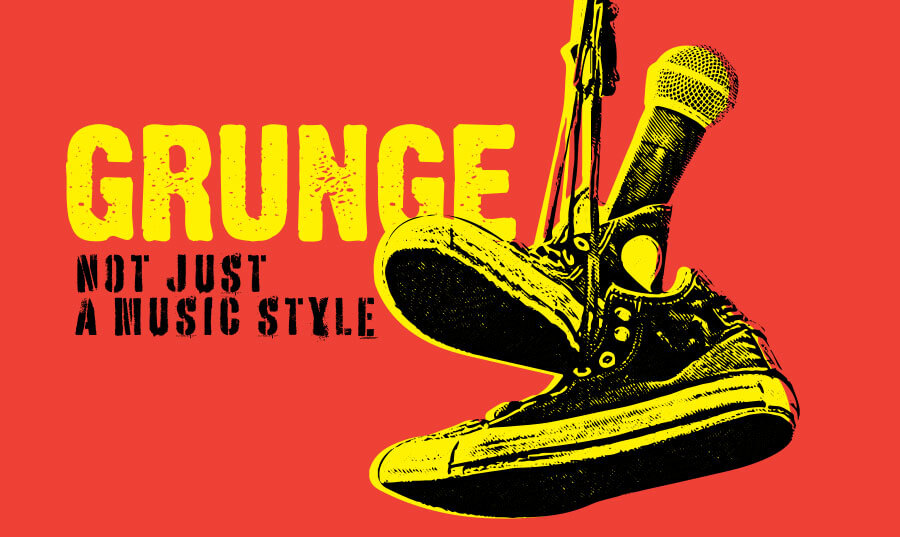All images courtesy of Chris Celona/The Grunge Bible
One of the things that have kept me going through 2020 and into 2021 has been music. Of course — vinyl, but I’ve also re-started my cassette collection as well as my CD collection. I am left feeling like a very well-rounded lover of music if I don’t say so myself. Anyway, aside from collecting (hoarding?) music, I also have enjoyed my conversations with fellow music lovers, and today will be no different. It’s not often that I get to talk music, let alone Grunge with someone as informed as Chris Celona from The Grunge Bible. Chris, along with his friend Ethan, founded The Grunge Bible in 2016 and it’s grown to amazing success through various social media outlets and the like. What I love about The Grunge Bible, aside from its focus on Grunge, a genre that has been sort of buried in recent years, is they have never stopped being fans, and they have created a really nice community around what they do. In a year like 2020/2021, what more can you really ask for than that? A love of music and good conversation with good people? I’ll take it. Chris and Ethan have started up their own website here, and they’re selling some killer merch now. Check it out and grab some stuff- it’s very cool, and of course, you can follow them on Instagram here, and Facebook here. That’s all I got. Enjoy this one. Great talk!
Andrew:
Chris, thank you so much for taking the time to speak with us. Tell us about your back story. How did you get into music?
Chris:
Hi, Andrew! Thanks for having me! My entrance into music likely mirrors most of my age cohort (I am 24). My earliest musical memories revolve around FM radio in the car as a young child. I caught the last breath of the prevalence of Rock/Alternative/Post-Grunge on Top-40 radio as a child, and I would imagine something about all of that guitar-driven music stuck with me all those years ago. Once music became readily available through the Internet in the mid-2000s, I began exploring different songs and artists that appealed to me. Typically, I would listen to something on the radio (most often on 94.1 HJY and 95.5 WBRU – the local Rock and Alternative stations in my home state of Rhode Island), then, off to the computer, I would travel to listen to more of what caught my ear. I began to dive into ‘Grunge’ Rock when I was in high school, after years of hearing the hits like ‘Alive’, ‘Black Hole Sun’, and ‘Rooster.’ That really opened up the genre for me and I got to the point where I could not consume enough of it!
Andrew:
2020 has been a weird year. What have you been doing to pass the time?
Chris:
You can say that again! Like many of us, I certainly had a lot of time on my hands throughout the year. Aside from work, where I changed jobs and career fields, I spent a lot of time reading, listening to music (obsessively), playing guitar (poorly), and just a lot of music research and discovery. I’m always looking to find new music and expand my repertoire, and there truly is SO much great stuff out there.
Additionally, I took up distance running. I was a student-athlete in college, and when all of the gyms shut down, I absolutely needed a new physical outlet, so I’m thankful I found running!
Andrew:
You’ve been running the Grunge Bible since 2016, right? Tell us how that started. What gave you the idea, and how did it become what it is today?
Chris:
I started and presently operate the page alongside one of my best friends, Ethan Shalaway. He and I were teammates for one season in college, and in spring 2015, we both decided to transfer to new schools due to some changes that were set to occur on the team. That spring, the Pearl Jam song ‘Release’ became an anthem of sorts for us, and I remember sitting there listening to that song on YouTube with Ethan just marveling at the comment section. It was pretty wild to see how many people were affected so deeply by the music.
As 2015 went on and we went our separate ways, we kept getting deeper and deeper into the genre, and I think it was Ethan who said to me something like, “We need to be a part of this subsection of the Internet.” We both decided that we didn’t want to spam our personal friends on social media with tons of music content, so one night, February 1, 2016, we just decided to make an Instagram page about the genre, in hopes that we could be a part of those conversations we first saw in the YouTube comment sections.

Andrew:
What is it about Grunge that you love so much? What initially drew you to the genre, and what’s kept you coming back for more?
Chris:
The genre definitely came to me at a pivotal point in my life, as it was that time where you’re going through a big transition, and you’re in a very formative period of life – your late teens, or early twenties. I think all of us will always remember the music we were listening to at that age. And for me, it was Grunge Rock. Initially, for me, it was the sound. It just sounded different. Before I knew what power chords or fuzz pedals were, I remember being attracted by the sound. That definitely drew me in, but what has kept me there are the lyrics. The entire genre showcases absolutely brilliant songwriting. The lyrics of the genre have connected with me in such a way that I can derive personal meaning out of them, and, even though they weren’t written for me, they feel like they were.
Andrew:
I know you guys don’t like to reveal your definitive favorite. That said, who are some of your favorites and why?
Chris:
Pearl Jam will always be at the top of any personal favorites list that I make. They were the first of the ‘Grunge Rock’ bands that clicked with me, and their catalog is so expansive, and they have covered so many different subgenres and styles to the point where you can get such a diverse listening experience from just one band. If we’re talking about one band that, for me, encapsulates the entire scene, it is Mudhoney. In fact, on the page, Ethan and I often joke that ‘Mudhoney is the only real grunge band.’
The songwriting and structure, to me, is what ‘Grunge’ is. Equal parts punk and rock, all parts intensity. Those guys bring it. The Screaming Trees are another favorite of mine. Mark Lanegan might possess my all-time favorite voice, and the Conner brothers could write some fantastic music. Additionally, I’ve always been fascinated by the Mad Season project, and anything Chris Cornell has been involved with is enjoyable for me.
Andrew:
We all know who the major players within the Grunge genre are (Nirvana, Pearl Jam, Alice in Chains), but in your opinion, who are some of the more underrated groups that people need to be digging into?
Chris:
Anyone who follows Grunge Bible will know of my affinity for Mudhoney, so they are usually my first suggestion. I think that the ‘Deep Six’ compilation album from Sub Pop is as good a place as anywhere to start when it comes to broadening horizons. In a way, those were the bands that influenced almost every other band to come from Seattle. Green River, The Melvins, Skin Yard, etc. I’ll always tell people to check out the Screaming Trees, Mother Love Bone, and Tad.

Andrew:
Grunge is funny. There is the first initial indie wave, the second major wave in the early 90’s when it blew up, and then the commercialized period from the mid to late 90s, which kind of fizzled out in the early 2000s. What’s your opinion on the arc of Grunge? Where does the genre stand today?
Chris:
It’s definitely got a unique arc. In my view, ‘Grunge’ as a genre always had a lot of heterogeneity to it — Nirvana was straight from the Punk tradition, Alice in Chains initially began on the Metal circuit, and Pearl Jam and Soundgarden were a conglomerate of sounds ranging from 70s Rock to Blues to Punk. So there are a lot of bands and songs and records that get labeled as ‘Grunge’ that really do not have much in common musically (aside from geographic origin) with the other things listed under the ‘Grunge’ label.
I always view the main era of ‘Grunge’ as having ended around 1993-94. Since then, we’re definitely blessed that some of the bands are still around making music, and we have newer bands who were influenced by the genre growing up, but ‘Grunge’ as a genre certainly doesn’t feel like a major player in the modern music scene. Similar to a lot of guitar-driven music, it just isn’t ‘in’ anymore. That said, I still feel that the fans of the genre are as passionate as ever.
Andrew:
Following up on my last questions. Those mid to late 90s bands (Creed, Alter Bridge, Candlebox, etc.) take a lot of heat for being generic and overly produced. What are your thoughts on that?
Chris:
Ethan and I always have this to say – “There are two types of people: Those who like Creed, and liars.” I will say that, like a lot of the Glam/Hair Metal of the 1980s, a lot of the Post-Grunge bands of the late 1990s have not aged well. But, I passionately contend that that is not their fault, nor is it really even controllable. When we talk about those kinds of bands, we definitely tend to forget that these are some hugely talented musicians who were able to write and perform hugely successful and popular songs. And that isn’t easy- if it was, everyone would be doing it.
While I do agree that there was a trend towards overproduction at that time, I don’t believe in ‘selling out’ as a valid criticism for them, or for anyone, really. Judgment of musical taste and gatekeeping of certain genres are two of the most destructive trends in music fandom, and you won’t ever catch me doing either of the two. You can catch me rocking out to some Post-Grunge from time to time, though. At the end of the day, you have a song like Creed’s ‘Higher’, whether you love it or hate it, is known by virtually every single living breathing soul in the country. How many bands can say that? That, in my opinion, is an accomplishment in and of itself.
Andrew:
I’d like your opinion on this: There are a lot of artists out there who are fantastic, but get stuck in the underground, while others go on to great success. What is it about our culture that causes this to happen? Do you think the general public is truly listening?
Chris:
In the present day, I think it is very difficult to make it as a Rock act because the industry just doesn’t seem to have the appetite for it at this point. Pop is in, Rock is not. Like you inferred, there are so many bands and artists who ‘have it,’ but don’t achieve commercial success, and honestly, I feel that a lot of it just comes down to luck and to timing. Things move so fast in our modern world, that the opportunity to catch that proverbial lightning in a bottle can come and go so quickly.
The internet certainly makes it easier to reach an audience who may be receptive to your music, but it is increasingly difficult for making music to be sustainable for people, given the considerably minuscule revenue structures for streaming services, along with a high cost of living combined with stagnant wages in virtually every other industry that rising artists will also work in to support themselves. So, it really is a double-edged sword.

Andrew:
In the world we live in today, we are more or less dominated by capitalism and the never-ending barrage of social media. How has this affected music as an art form? Is an artist’s ability to get their music out there hindered by all this, or helped?
Chris:
There is definitely a dichotomy to it as I just alluded to. It has never been easier to get your music out into the world, thanks to Spotify, Bandcamp, Soundcloud, and YouTube. But, just because it is out there, doesn’t mean that those who come across it will be receptive to it or even pay any attention to it. I’ve read that the average view time for an Instagram post is something like 3 seconds. And we’ve all done the ‘mindlessly scroll past hundreds of posts’ thing.
So yes, it is easy to get your music out there, but the avenues that make it easy are not the most conducive to getting it out to people who are conscious of their consumption of it. It must be incredibly difficult as an artist because it isn’t just a question of making quality music – it has to be consumable, and quickly consumable – to grasp the attention of our consumer society which demands immediate gratification.
Andrew:
Are you into vinyl? Tapes? CDs? Or are you all digital now? Where do you like to shop for music?
Chris:
As I’ve gotten older, I’ve tried to become more conscious of how I consume music, and how I can support musicians. Like most of us, I am primarily digital, but I make an effort to buy physical copies of albums that I appreciate in an effort to support musicians. I’ve gotten into vinyl over the last 12-18 months, so that has been my focus as of late. I love going to record shops to peruse through the stacks and stacks of vinyl, because, unlike digital consumption, you never know what’s going to be there.
When a new record is coming out, I usually try to buy the vinyl from whichever avenue I think will most support the artist. If I can’t get a physical copy, I’ll try to buy a shirt, or a pin, or a sticker, or something like that.
Andrew:
What are some albums that mean the most to you and why?
Pearl Jam, Ten, Bruce Springsteen, Darkness On The Edge of Town, Julien Baker, Sprained Ankle, U2, The Joshua Tree, and Nick Drake, Pink Moon all have a place in my personal musical pantheon. The one commonality these albums have is that they were present during significant times in my life, some good, some bad. I can listen to any of these albums and immediately and vividly recall people, places, and emotions. Music is a powerful thing.

Andrew:
Once COVID-19 calms down, what does the future hold for The Grunge Bible? What’s next? What drives you? What inspires you most?
Chris:
Our biggest driving force for the Grunge Bible is to make people smile. If what we can post can bring back a happy memory, can help someone discover some new music, or share something that helps people get through the day, then our job is complete. Music can be a fantastic force for the community, and we try to do that through the page. Our goals for the future include starting a podcast, going to shows with people we’ve met on the page (Grunge Bible meet-up at the next Pearl Jam show, anybody?), and continuing to share music, both old and new, that has inspired us.
We want to work to use the platform we have for good, as we have tried to do so far. In 2020, we launched a merchandise line where all proceeds from the first month of sales went to suicide prevention nonprofits, so we want to do more things like that.
Andrew:
Even though 2020 was pretty awful, we still saw a ton of great music released. What are some of your “must-haves” of 2020?
–Straight Songs of Sorrow by Mark Lanegan
–Punisher by Phoebe Bridgers
–folklore by Taylor Swift
–color theory by Soccer Mommy
–St. Cloud by Waxahatchee
The new music releases of this year were so pivotal. I think we all relied on our anchors a little bit more heavily this year, and music is a primary anchor for me, so compliments to all of these tremendous musicians who were able to create art that made 2020 a little more palatable for me.
Andrew:
Last question. With the Grunge Bible, you’ve obviously embraced the DIY mentality and ethos, which is awesome! What advice would you have for anyone that wants to give it a go?
Andrew:
The same can be said for you, Andrew! I think, in simplest forms, it comes down to passion and intent. Any endeavor in life must be accompanied by a passion for whatever it is you’re doing. I think with social media, your intent has to be genuine.
Sitting here today, we have over 250,000 followers on Instagram, and over 160,000 on Facebook. I think the only reason we’re in this position is that the intent has always been on the music and sharing in it with others. We’ll never claim to be any sort of authority on music, we’re fans, just like everyone who interacts with us on the pages.
Lastly, I think it is most important to be kind to one another. Especially, people, you don’t know. If you choose to create or share content, you never know who it will reach, and if you are kind, you never know who will benefit from that kindness. That makes it all worth it.

Dig this interview? Check out the full archives of Vinyl Writer Interviews, by Andrew Daly, here: www.vinylwritermusic.com/interviews
